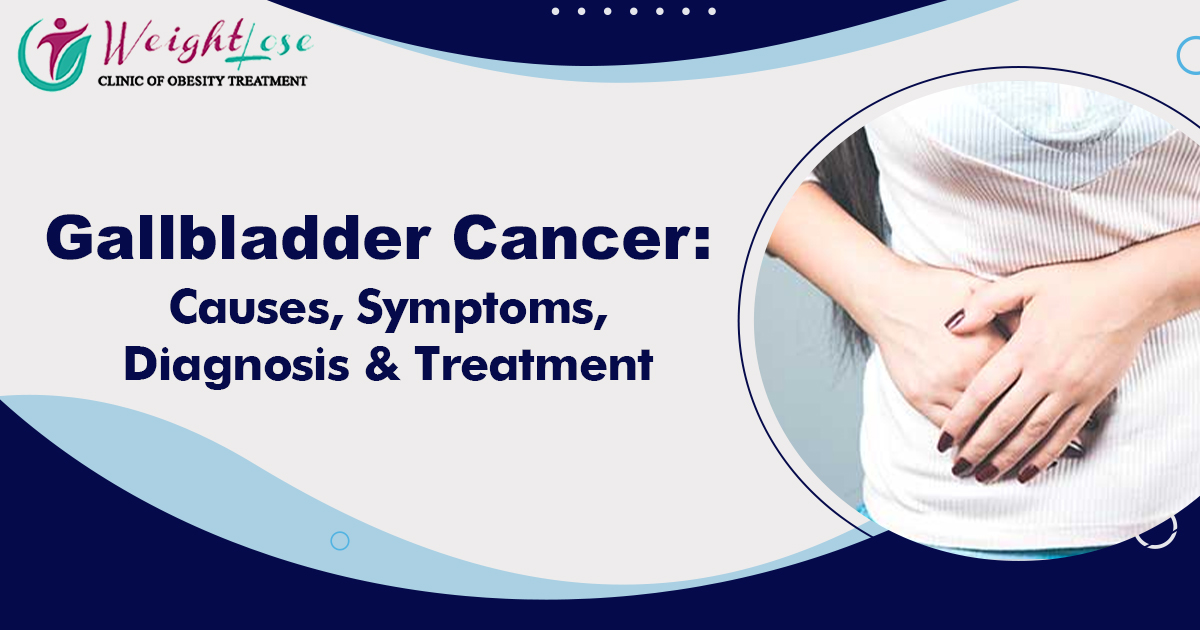What is the gallbladder?
The gallbladder is a little, pear-shaped organ found in the upper right side of the abdomen, next to the liver. It serves as a reservoir for bile, a greenish-brown fluid that the liver produces. Bile has a significant role in lipid digestion and absorption in the small intestine.
Bile is a fluid that the liver continuously creates and then transports to the gallbladder through tiny ducts known as bile ducts. Bile helps emulsify lipids by breaking them down into tiny droplets that are easier for enzymes to digest and absorb.
Consulting with experts in the medical field, Dr. Tarun Mittal, and seeking assistance from reputable Weight Loss and Obesity Centre, the top weightlose clinic in Delhi NCR can enhance the chances of successful outcomes and better quality of life for patients.
Understanding Gallbladder cancer:
Gallbladder cancer is a rare but aggressive form of cancer that affects the gallbladder, a small organ located beneath the liver. Although it is relatively uncommon, it is crucial to understand its causes, recognise its symptoms, employ early diagnosis methods, and explore various treatment options to combat this deadly disease.
Causes of Gallbladder Cancer:
The exact cause of gallbladder cancer remains unclear, but several risk factors have been identified:
- Gallstones: The greatest risk factor for gallbladder cancer is gallstones. Chronic inflammation brought on by gallstones can cause cell alterations and increase the risk of cancer.
- Age and gender: Gallbladder cancer is more common in people over 65, and women are somewhat more likely to have it than men.
- Obesity: Although obese persons are more likely to develop gallstones, obesity is linked to a higher risk of gallbladder cancer.
- Alcohol and Smoking: Both heavy drinking and heavy smoking have been associated with an increased risk of gallbladder cancer.
- Symptoms of Gallbladder Cancer:
Gallbladder cancer in its early stages frequently has no symptoms, making identification difficult. However, if the illness worsens, the following signs could appear:
- Abdominal Pain: An upper right abdominal ache that lasts for a long time is a typical early sign.
- Jaundice: When a tumour obstructs the bile ducts, yellowing of the skin and eyes results.
- Unexplained Weight Loss: Unintentional weight loss may be a sign of advanced gallbladder cancer.
- Loss of Appetite: Cancer patients can experience a loss of appetite and a sense of satiety even after little meals.
- Vomiting and Nausea: The existence of a tumour might disrupt digestion.
Diagnosis of Gallbladder Cancer:
Diagnosing gallbladder cancer requires a combination of imaging tests and biopsies:
- Ultrasound: An initial ultrasound can detect abnormalities in the gallbladder, such as the presence of tumours.
- CT scan or MRI: These imaging techniques provide detailed images of the gallbladder and surrounding organs to assess the extent of cancer.
- ERCP: Endoscopic retrograde cholangiopancreatography (ERCP) helps visualise the bile ducts and obtain biopsy samples.
- Biopsy: A tissue sample is obtained during surgery or through ERCP to confirm cancer and determine its stage.
Treatment of Gallbladder Cancer:
Treatment options for gallbladder cancer depend on the stage of the disease and the patient's overall health:
- Surgery: Early-stage gallbladder cancer is typically treated with surgery to remove the gallbladder (cholecystectomy). In some circumstances, the surgeon may additionally remove portions of the liver and adjacent lymph nodes.
- Chemotherapy: Chemotherapy is used to decrease tumours and treat symptoms when gallbladder cancer is advanced or when surgery is not an option.
- Radiation Therapy: High-energy rays are used in radiation therapy to target and kill cancer cells. It can be applied both before and after surgery to decrease tumours and get rid of any cancer cells that may still be present.
- Targeted Therapy: By specifically targeting chemicals involved in the formation of cancer, targeted medications can be employed in some circumstances to suppress the growth of cancer cells.
Conclusion:
Gallbladder cancer is indeed a serious disease, and early detection and timely treatment are vital for better outcomes. Understanding the risk factors and being aware of the symptoms can help individuals seek medical attention promptly, leading to a higher chance of successful treatment. Consulting with experts in the field as Dr. Tarun Mittal, known as the best robotic surgeon in Delhi NCR, can be beneficial for patients seeking specialized care. Dr Mittal's expertise and experience in the field of gallbladder surgery and obesity management can offer patients advanced treatment options and personalized care.


